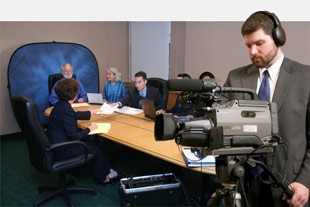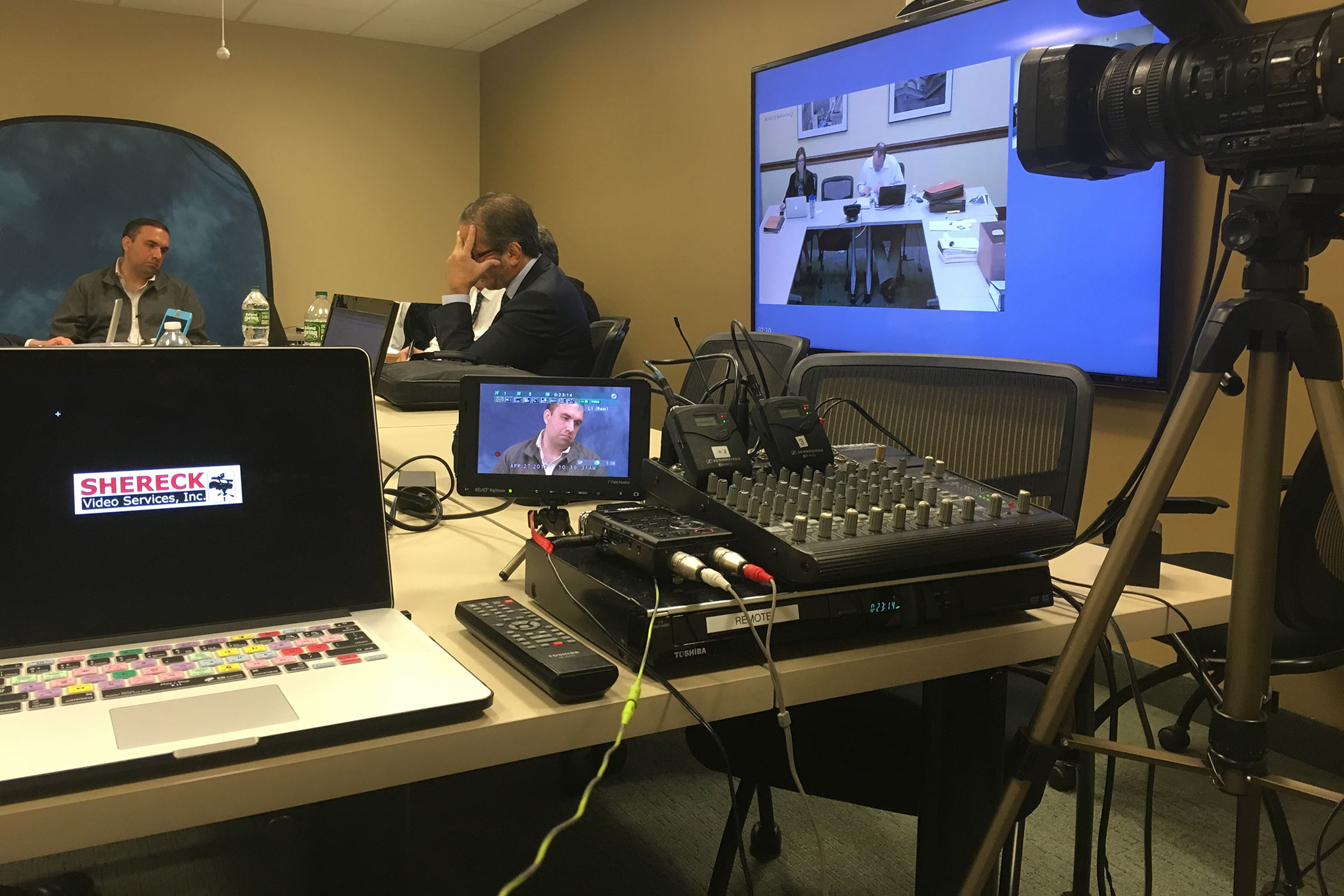Specialized Legal Videography for Law Firms.
Specialized Legal Videography for Law Firms.
Blog Article
The Role of Legal Videography in Depositions and Trials
Lawful videography has emerged as a necessary tool in both depositions and tests, supplying a complex method to recording witness testaments. As legal professionals significantly identify its worth, it motivates a deeper exam of how these visual records can influence juror perceptions and trial outcomes.
Relevance of Lawful Videography
Legal videography plays a pivotal role in the paperwork and presentation of depositions and trials. This specialized area combines technical skills with legal understanding to create a reputable document of process that can considerably influence case outcomes. The appearance of lawful videography enhances the understanding of witness statement, allowing jurors and judges to observe not just the talked words however likewise the disposition, feelings, and body movement of the witnesses.

The importance of legal videography prolongs beyond the court; it additionally plays an important duty in maintaining evidence for future recommendation, whether for appeals or further lawsuit. Its assimilation into the legal procedure is necessary for making certain a fair and accurate depiction of the truths, eventually adding to the pursuit of justice.

Process of Legal Videography
While capturing the nuances of depositions and trials, the process of lawful videography involves several vital actions that make sure top notch, accurate recordings. At first, a professional lawful videographer prepares by evaluating the situation products and understanding the particular requirements of the deposition or test. This preparation includes familiarizing themselves with the individuals and the context, which aids in capturing essential information.
On the day of the recording, the videographer establishes up the essential devices, which generally consists of high-definition video cameras, microphones, and correct lighting. Making certain optimal angles and sound high quality is critical, as it directly influences the performance of the recording. The videographer interacts with attorneys and individuals to develop procedures, ensuring that everyone comprehends the recording procedure.
Throughout the deposition or test, the videographer thoroughly videotapes the process, paying attention to both spoken and non-verbal signs. legal videography. This consists of recording the temperament and reactions of witnesses and lawyers. After the session concludes, the videographer might edit the footage for quality and compliance with lawful standards, producing an end product that accurately reflects the process for future recommendation and use in legal contexts
Advantages in Depositions
The unification of videography in depositions uses various benefits that boost the general process of gathering proof. One primary benefit is the ability to capture witness statements with aesthetic and auditory fidelity, giving a much more exact representation of the witness's attitude, tone, and body language. This multidimensional approach enables attorneys and courts to analyze integrity better than standard written records alone.
Furthermore, videographed depositions act as an effective tool for maintaining testament. Must a witness become unavailable for trial, their recorded deposition can be played in court, guaranteeing that their proof stays easily accessible and pertinent. This element dramatically reduces the danger of shedding essential info that can affect situation end results.
In addition, using lawful videography advertises far better prep work for lawyers. have a peek here Assessing video footage allows legal groups to assess and fine-tune their approaches, recognizing staminas and weaknesses in their situations. This primary benefit can lead to even more engaging discussions in court.
Lastly, videography improves the total expertise of the deposition procedure, instilling confidence in customers regarding the thoroughness of their legal representation. By leveraging modern technology, attorneys can significantly enhance the effectiveness of depositions.
Influence On Tests
In many trials, the assimilation of videography can substantially affect the presentation of proof and the jury's understanding. Lawful videography catches witness testimonies and critical proof in a vibrant format, permitting jurors to involve with the material on numerous degrees. This visual component enhances the narration element of a test, offering context and emotional resonance that conventional text-based proof might do not have.
Furthermore, video clip recordings can function as effective devices for impeachment during cross-examination. When discrepancies develop in between a witness's previous declarations and their court statement, video evidence provides an objective referral that can persuade jurors' opinions. This immediacy and clearness can reinforce the credibility of see an event's narrative while concurrently undermining opposing arguments.
Furthermore, the use of videography can aid streamline complicated info, making it extra accessible to jurors that may have a hard time to understand elaborate details presented only through verbal testimony. By integrating visuals with auditory information, lawful videography can improve retention and understanding, eventually influencing the jury's decision-making process. Therefore, the impact of videography in tests expands past plain appearances; it plays a critical duty in shaping the lawful landscape and end results.
Future Trends in Legal Videography
As we look towards the future of legal videography, a number of emerging patterns assure to reshape its duty within the court room. One significant fad is the assimilation of artificial intelligence (AI) in video clip evaluation and editing and enhancing - legal videography. AI can streamline the procedure of recognizing crucial minutes in recorded depositions, enabling lawyers to quickly access pertinent content, therefore boosting performance in instance preparation
Furthermore, the rise of virtual reality (VR) and augmented truth (AR) modern technologies is anticipated to transform just how jurors experience evidence. By submersing jurors in a simulated atmosphere, these technologies can offer a more extensive understanding of intricate scenarios, causing even more educated considerations.

Moreover, the increasing need for remote depositions, accelerated by the COVID-19 pandemic, will likely continue. Lawful videographers will need to adapt to brand-new software and platforms to ensure premium recordings in digital setups.
Lastly, the growing focus on data protection will necessitate more stringent protocols for keeping and sharing video clip proof. As the legal landscape evolves, legal videographers must remain abreast of these patterns to preserve their importance and efficiency in the judicial process.

Final Thought
In recap, legal videography offers a crucial function in the judicial process, improving the stability of you can try these out depositions and tests. As modern technology proceeds to progress, legal videography is positioned to further transform its duty within the lawful landscape.
Report this page